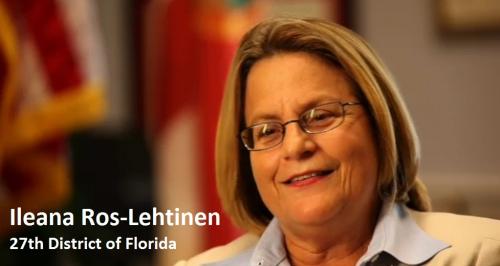In February 2017, data published by the United States Census Bureau of the United States Department of Commerce included from the Houston/Galveston, Texas, District (Port) a shipment of rice valued at US$252,000.00 to the Republic of Cuba.
24 April 2017 Update: Data from Newark, New Jersey-based PIERS (Port Import/Export Reporting Service) does not indicate rice was exported from the Houston/Galveston, Texas District (Port) to the Republic of Cuba. PIERS has reviewed several months of data and shows no rice shipments from the United States to the Republic of Cuba in 2017. Thus, data published by the United States Census Bureau remains in conflict with PIERS data and remains under review.
This would be the first export of rice from the United States to the Republic of Cuba since 2008.
The shipment of 157.8 metric tons contained US$126,000.00 of semi/wholly milled, parboiled, inc mixs and US$126,000.00 of semi/wholly milled, mixtures of grains.
From 2002 through 2008, rice exports from the United States to the Republic of Cuba were US$190,737,079.00. The primary rice-growing states are Arkansas, California, Louisiana, Mississippi, Missouri, South Carolina and Texas.
"On 4 April 2017, Rep. Rick Crawford (AR-1), Chairman of the House of Representatives Agriculture Committee’s Subcommittee on General Farm Commodities and Risk Management, held a hearing to further examine the effectiveness of farm policy in advance of crafting the next farm bill. Members of the committee heard from witnesses who shared the perspectives of the cotton, rice, peanut, canola, and sugar industries on the importance of both commodity policy and crop insurance. This hearing continues the committee’s hearing series to set the stage for the next farm bill."
Testimony of Blake Gerard
Before the U.S. House of Representatives Committee on Agriculture
Subcommittee on General Farm Commodities and Risk Management
Hearing: “The Next Farm Bill: Commodity Policy Part II”
Washington, D.C.
April 4, 2017
Excerpts:
"My name is Blake Gerard. I serve as the Chairman of the USA Rice Farmers Board of Directors, Chairman of the USA Rice Government Affairs Committee, and as an active member of other state and national industry-related boards and committees.
Trade and Export Factors Influencing U.S. Markets
The industry heavily relies on exports. Approximately 50 percent of our annual crop is exported to more than 120 countries around the globe, accounting for 10 percent of global rice trade.
These exports are critical to rice farmers, millers, and merchants. The volatility of the global rice export market makes it difficult to project sales beyond several months and the levels of U.S. rice exports have been inconsistent over the last decade, adding to the uncertainty in our markets. We are also seeing a consistent increase of imported foreign rice, growing from 5 percent to nearly 20 percent over the last two decades, putting domestic growers at even more of a disadvantage.
Examples of Export Challenges
The U.S. rice industry continues to face a number of challenges in exporting our safe, nutritious, and cost-effective crop. Several examples include:
No access to the Cuban market.
With the appropriate statutory changes, the U.S. could regain 30 percent of the Cuban rice business within two years. That is an estimated 135,000 metric tons of new demand. We anticipate the U.S. share of the market would exceed 50 percent within five years, and it could reach 75 percent or more within ten years with full commercial relations. That is equal to somewhere between $40 and $60 million worth of new demand from Cuba within those first two years of lifted sanctions. We are thankful for the efforts of Chairman Crawford along with a number of other Members of the House Committee on Agriculture that sponsored a bill to remove private financing barriers for agricultural commodities with Cuba."
Background- U.S. Food Product/Agricultural Commodity Exports To Cuba
Since December 2001, more than US$5.3 billion in agricultural commodities and food products have been exported directly from the United States to the Republic of Cuba on a cash-in-advance basis as required by the Trade Sanctions Reform and Export Enhancement Act (TSREEA) of 2000.
No United States company which has exported product(s) to the Republic of Cuba since 2001 has publicly stated what payment terms it would currently provide if authorized by statute.
The government of the Republic of Cuba prefers to purchase food products and agricultural commodities from government-operated exporters where either the exporter or the government of the Republic of Cuba accesses government export-payment guarantee programs.
Government of Vietnam-operated Vinafood (1 & 2) have provided payment terms to Republic of Cuba government-operated Alimport of two (2) years to pay for rice (25% to 30% broken). The Republic of Cuba annually imports approximately 2000,000 metric tons to 400,000 metric tons of rice, primarily from Vietnam and People's Republic of China. Republic of Cuba annual domestic requirements are approximately 700,000 metric tons. The Republic of Cuba does grow a small quantity of rice.
United States producers can provide this product; however, payment terms, if statutorily permitted, without the use of United States government guarantee programs, would be cash-on-delivery to 30 days; and for credit-worthy customers, generally not exceed sixty (60) days to ninety (90) days according to United States exporters.
RELATED BLOG POST LINKS:
http://www.cubatrade.org/blog/2016/5/11/want-to-have-a-legislative-victory-then-be-specific-define-payment-terms?rq=payment%20terms
http://www.cubatrade.org/blog/2017/3/19/i7zxic4x9yweb1q0u1fqn6idmstyko
http://www.cubatrade.org/blog/2017/3/8/naqwf4sownekzbxahs76oysizs5p20
http://www.cubatrade.org/blog/2017/3/1/u4m9xhe3bc9iurkasacffinm2pc12m


































